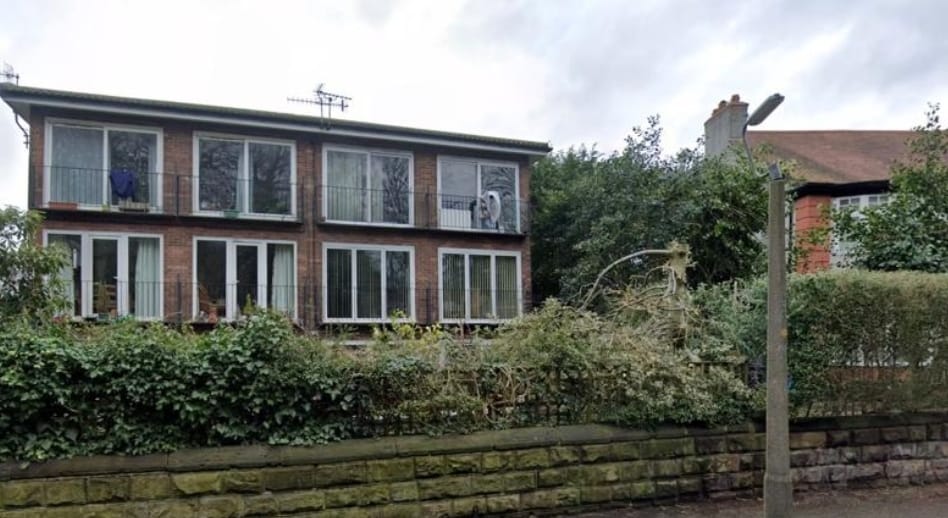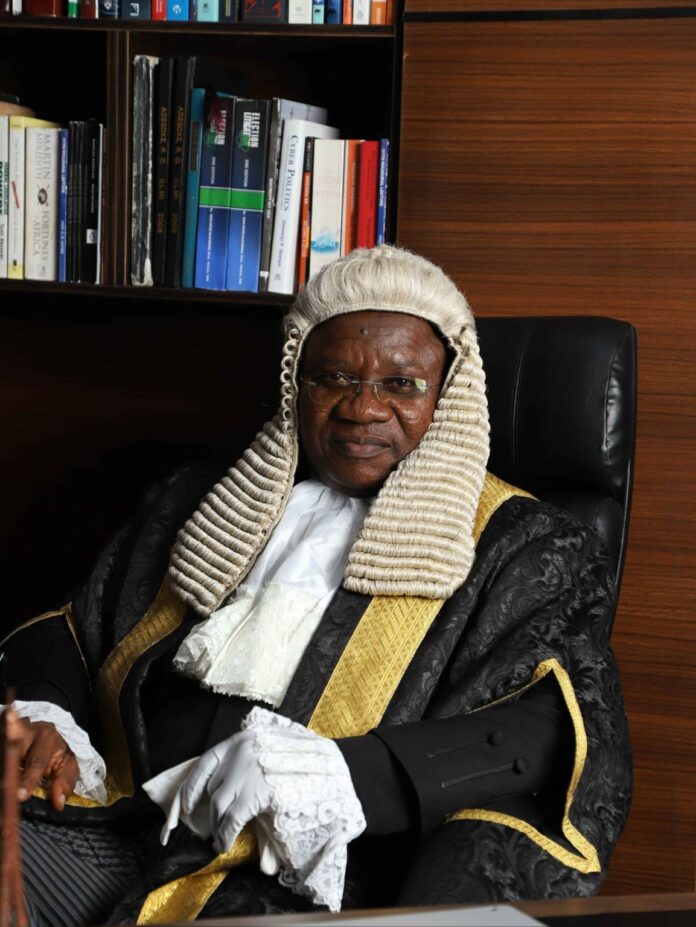A senior lawyer, Mr Kunle Adegoke, SAN has advised the 36 state governors to urgently review all existing foreign investment agreements they have entered into so that Nigeria is not made a laughing stock in the comity of nations.

He spoke against the backdrop of the plans by a Chinese investment group, Zhongshang Fucheng Industrial Investment Ltd, to sell two confiscated residential property on the global online marketplace eBay.

According to a report by Peoples Gazette, the firm is planning to sell the property to recover up to $70 million in arbitration awards from Nigeria.
BAR & BENCH WATCH reports that in June 2024, Zhongshang seized the two buildings, located in Liverpool, United Kingdom, after Nigeria failed to comply with a 2021 arbitration ruling.
The property, at 15 Aigburth Hall Road and Beech Lodge, 49 Calderstones Road, were targeted following a British court order in December 2021, which allowed Zhongshang to seize Nigerian assets in the UK.
This action was taken to recover the $70 million award, which remains unpaid as of August 2024, with interest accruing at two per cent per month. Zhongshang had been awarded $55,675,000, along with $9,400,000 in interest and £2,864,445 in legal costs, as per court documents.
The dispute traces back to a 2018 arbitration case between Zhongshang and Ogun State, Nigeria. Zhongshang accused the state of violating a 2001 trade treaty between Nigeria and China by revoking its rights to a free trade zone in 2016.
The company claimed that Nigerian federal agencies, including the police, immigration, and export processing authorities, were used by Ogun State without proper legal procedure.
Court records indicate that two Zhongshang executives were expelled from Nigeria between mid and late 2016, with one reportedly detained and tortured by the police.
This case adds to Nigeria’s growing legal troubles, coming just months after the country narrowly avoided a similar arbitration ruling that could have cost over $11 billion to the P&ID consortium.
Unlike the P&ID case, which was later nullified due to evidence of bribery and corruption, the Zhongshang case has seen enforcement orders granted by multiple European courts, including those in the UK, Belgium, and France. Nigerian-owned assets, including jets, are currently being pursued.
Additionally, a recent appellate decision denied Nigeria’s request for sovereign immunity protection against Zhongshang’s recovery efforts in the United States.
A consultant working with Zhongshang, who spoke anonymously, disclosed that the company is preparing to sell the two Liverpool properties, with an asking price of up to $2.2 million for both. The property may be listed on platforms like eBay to attract quick buyers.
Despite being owned by Nigeria, the properties were seized because they were not classified as diplomatic or consular assets. It was revealed that the current occupants of the properties had no ties to Nigeria’s mission in the UK. The properties had often been rented out to guests, further supporting their classification as commercial assets under UK law.
In her June 14, 2024, ruling, Master Lisa Sullivan of the UK High Court, King’s Bench Division, noted: “The property are currently used for the purpose of leases to residential tenants unconnected with Nigeria and its mission. Those are commercial purposes…and therefore the enforcement against the properties is not barred by state immunity.”
The consultant assured that the sale process would be transparent, allowing Nigerians to be informed about the sale prices of the assets until the full recovery amount is achieved.
“Zhongshang promised transparency with the sale due to the keen public interest of Nigerians in the matter,” the consultant added.
Reacting to the agreement which had sparked controversy, a respected member of the inner bar, Mr Kunle Adegoke, SAN said “in the law of contract, there is what is called ‘the sanctity of contract’ and once an agreement is entered into, it must be carried out by the parties. In the Latin term, we say ‘pacta sunt servanda’.
“The agreement was between Ogun State Government and the Chinese entity based on a bilateral investment treaty between Nigeria and China.
“Nigeria’s argument was said to be based on the theory of sovereign immunity by which a foreign government cannot be made subject to the jurisdiction of another foreign court or arbitral panel.
“This argument was rejected while the judgment and a subsequent appeal went against Nigeria.
“I believe that we need to be careful about agreements we enter into with foreign investors.
“It is important that sub-national entities in Nigeria need to review all the foreign investment agreements they have entered into so that Nigeria is not made a laughing stock in the comity of nations.
“When agreements are breached, tendency is that Nigeria will be made liable as most jurisdictions all over the world have adopted the doctrine of restrictive immunity by which foreign sovereigns entering into commercial transactions are now liable under such contracts and the defence of absolute sovereign immunity does not avail anymore when it comes to commercial transactions,” he added.










